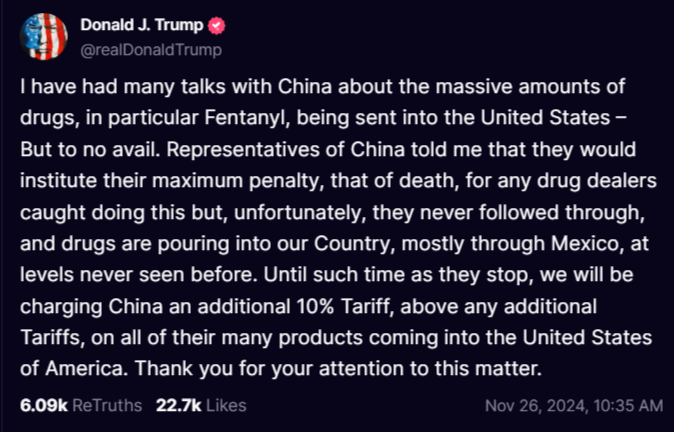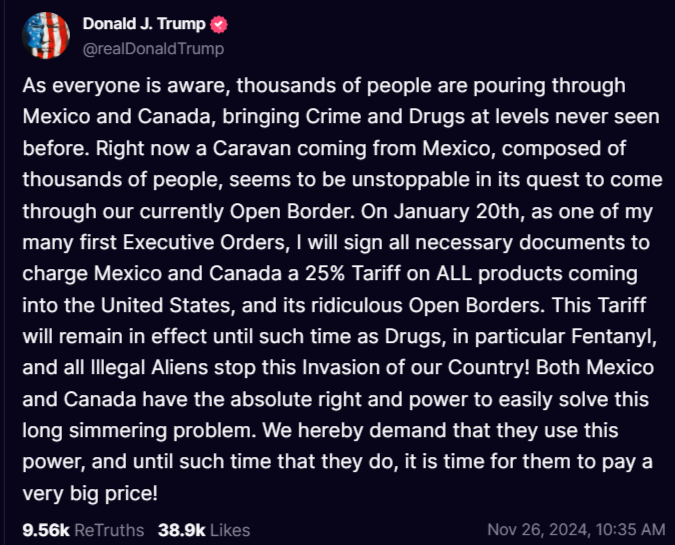United States President-elect Donald Trump has announced plans on Monday (Tuesday AEDT) to impose significant tariffs on imports from China, Mexico, and Canada, signalling a continuation of Trump's assertive trade policies and sparking concerns about global economic impacts.
In posts on his Truth Social platform, Trump proposed a 10% tariff on Chinese goods and a 25% tariff on all imports from Mexico and Canada. He framed the measures as necessary to combat illegal migration and drug trafficking, particularly fentanyl.

“Until such time as they stop, we will be charging China an additional 10% tariff,” Trump declared, accusing the country of failing to enforce strict penalties for fentanyl traffickers.
He also pledged to apply a 25% tariff on all products from Mexico and Canada, asserting, “As everyone is aware, thousands of people are pouring through Mexico and Canada, bringing crime and drugs at levels never seen before.”

The proposed tariffs rattled financial markets, with the Canadian dollar falling to a four-year low and Mexico’s peso nearing its weakest level since 2022. China's yuan also edged lower in offshore trading.
The announcement follows Trump’s appointment of Scott Bessent as Treasury Secretary, a choice that initially calmed concerns over potential trade policy extremities.
However, the tariff threats reignited fears about rising consumer costs and disruptions to trade flows.
The tariffs could upend several sectors, including North America’s integrated automotive and energy industries. A 25% tariff on Canadian imports would significantly raise energy costs, as Canada remains the largest supplier of crude oil to the U.S.
Mexico’s manufacturing sector, a critical exporter of electronics and auto components, would also face severe disruptions. Mexican officials estimate annual trade between the two countries exceeds US$800 billion (A$1.23 trillion), underscoring the potential economic fallout.
Trump’s announcement echoes his first-term trade policies, which included renegotiating the North American Free Trade Agreement (now the US-Mexico-Canada Agreement) and imposing tariffs on steel and aluminium imports.
Trump also reiterated his intent to implement sweeping immigration measures, including mass deportations and completing the border wall.
